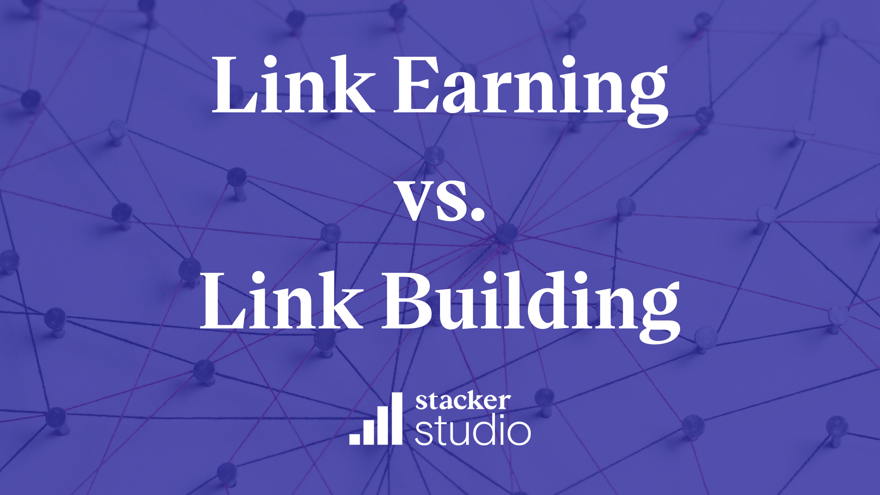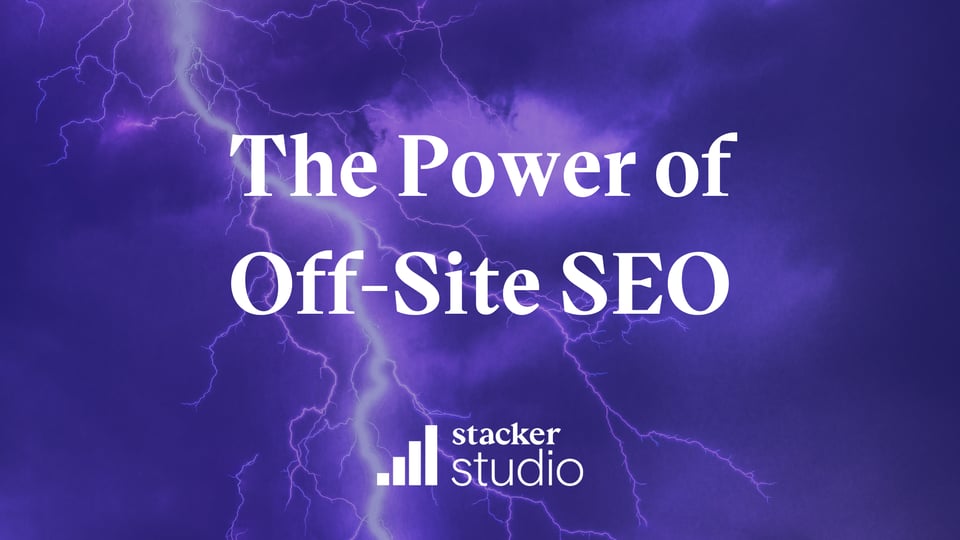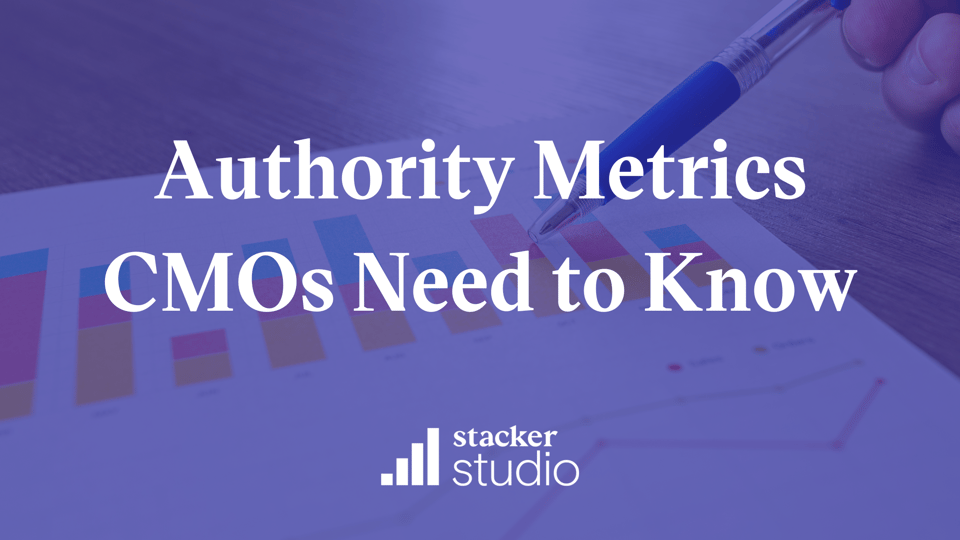For SEOs, the importance of links isn’t going away anytime soon.
In fact, in a survey of 270 SEOs, 94% said they believe Google will keep using links as a ranking signal for the next five years.
So while we agree links are important, there are nuances to how links are acquired.
Link earning has gained traction in recent years — and it’s how we do things at Stacker Studio — so it’s important to understand exactly what it is and how it can benefit your strategy.
What is link earning?
Link earning is about creating valuable and trustworthy content that’s worthy of being cited (and linked to) by site owners, bloggers, and/or journalists.
Usually, to deserve the link, content has to feature some sort of useful, unique element — whether it’s data analysis, original research, topical expertise, or actionable tips.
The content usually can’t be self-promotional, either. If it reads too much like an advertisement about a product or service, it’s less likely to earn a high quantity of valuable links because, understandably, people don’t want to link to an ad or to a source they believe is biased.
Link earning vs. link building
In the past, “link building” has represented pretty much all link acquisition activities, and in many circles it still does.
However, there are countless ways to acquire links for your site, and having a catch-all term isn’t really serving our industry anymore. A “link builder” can be creating a massive original report and pitching it to the media, or they can be paying $10 a link through a sketchy black-hat link building agency.
If you’re like us, you receive these types of lame pitches constantly.
From my perspective, it comes down to the approach. Link building is doing whatever you can to get the links. You don’t care about the way you get them — just that you get them.
Link earning involves making sure you’re producing something of value that’s deserving of high-quality links. This is why links are used as a metric of authority in the first place — because Google assumes someone is linking to you because they trust the content you’ve created.
To put it simply with gifs:
Link Earning Link Building
So what is the value of link earning?
Valid question! Why put more effort into something if you can take the easy way out?
Because backlinks are a ranking factor, they have a massive impact on your pages’ ability to rank in the SERPs.
However, link earning in particular has unique benefits.
1. You’ll earn higher-quality links
Due to its newsworthy approach, links acquired through link earning are usually of higher quality. This is because respectable sites are only going to reference content they trust, or else they risk damaging their own reputation.
Quality news outlets and websites will not link to your site if your story isn't credible or isn't going to add value to their readers. When you put in the time and effort to create a highly engaging, original, data-driven story, you will reap the rewards of high-quality coverage.
For example, here are the results we earned for one of our brand partners after creating six newsworthy stories for them and distributing the stories through our newswire (via earned syndication):
It would be nearly impossible to earn 192 links from sites with domain rating of over 75 without having top-tier content.
2. You won’t get penalized
Google uses links to assess the authority of a site because of the assumption those links are earned. If you are acquiring the links in any other way — private blog networks, paid guest posting, etc. — it’s possible Google will catch on.
It’s absolutely true that not every black-hat link gets “caught.” However, if you truly earn the links, you don’t have to worry about a future in which your site is penalized.
Tools are getting more sophisticated by the day. Better link maps, like Semrush’s Network Graph, can illustrate a site’s backlinks and how they’re connected to one another.
And I agree with Kevin; if Semrush can do this, Google can, too.
3. You’ll build brand authority
It’s true that the earned links themselves signal to Google that you’re an authority, especially when the links are coming from trusted sites.
But you’re also building authority with a wider audience. When people see your brand name as the source of a compelling piece of content, they’ll start associating your brand as having interest or even expertise in that topic.
Check out how Pyn was mentioned in this authoritative piece — as the very first word. There is so much authority in an association like this.
Of course, your brand name won’t always be the first word, but if you’re the source of the information being covered, you’ll more often than not be in the first or second paragraph.
Getting started with link earning
Creating newsworthy content that earns links may be a simple strategy to outline, but it's not always easy to implement.
It requires great effort and resources to create compelling content and then distribute it in a way that gets the necessary attention so that authoritative sites pick it up. You will also need to build and maintain trust across the media landscape by establishing viable media relationships so you can have leverage with media outlets.
At Stacker Studio, we love working with brands who want to make earned linking a core part of their SEO strategies. But whether you decide to build an in-house team or work with agencies or consultants, just know that you’ll be dedicating a substantial amount of time and budget.
But, in the end, it’s absolutely worth it.





.jpg?width=1657&height=1000&name=Nav-Our%20Results(1).jpg)





